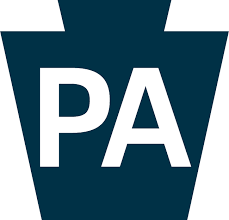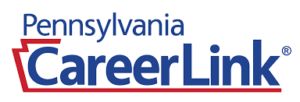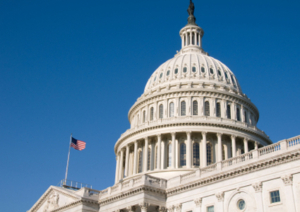COVID-19 Update: March 20, 2020
The following is a summary of the major COVID-19-related developments in Pennsylvania today as of 5:30 p.m. on March 20, 2020.
Pennsylvania Administration
 Since yesterday, the Department of Human Services has issued the following four new guidance documents:
Since yesterday, the Department of Human Services has issued the following four new guidance documents:
- Billing Guidance for Alternative Screening Sites Related to COVID-19
- Virtual Drop Ins Mental Health
- Revised Due Dates for Case Mix Index (CMI) Reporting, Cost Report Submissions, and Nursing Facility Assessment Payment Plan Requests
- Interim Guidance on Visitation in Nursing Facilities During COVID-19
We notified you last night that the governor issued an order to close all “non-life-sustaining businesses.” Below please find two resources for additional information.
- Any business that would like to seek a waiver to the mandate to close can send a request to this email address: RA-dcexemption@pa.gov
- In addition, questions about whether or not your specific business needs to close can be directed to: ra-dcedcs@pa.gov
At the Secretary of Health’s daily update she noted that the number of diagnosed COVID-19 cases in the state doubled in the past two days.
 Federal
Federal
Administration
CMS approved Washington state’s 1135 waiver request. The approval letter can be found here.
In addition, CMS released two telehealth toolkits: one for general practitioners that is available here and another for end-stage renal disease providers available here.
Congress
Congress is preparing a combination bill to both combat the spread of the coronavirus and also provide economic stimulus to counteract the negative effects of the state of emergency. As Congress deliberates, SNAP weighed in today with Pennsylvania’s congressional delegation, asking for immediate financial support for hospitals, the elimination of the Affordable Care Act Medicaid DSH cuts, and a moratorium on new regulatory requirements on hospitals. Find a summary of the bill here and SNAP’s letter to the delegation here.
Resources to Consult
Pennsylvania Department of Human Services
Pennsylvania Department of Health
Pennsylvania Emergency Preparedness Guide
Centers for Disease Control and Prevention
Conclusion
Please let us know if you have any questions or need additional information or resources.
 The insurers – Aetna, Capital Blue Cross, Cigna, Geisinger, Highmark, Independence Blue Cross, Pennsylvania Health & Wellness, United Healthcare, and UPMC Health Plan – will cover such tests when they are medically ordered and performed by approved medical labs.
The insurers – Aetna, Capital Blue Cross, Cigna, Geisinger, Highmark, Independence Blue Cross, Pennsylvania Health & Wellness, United Healthcare, and UPMC Health Plan – will cover such tests when they are medically ordered and performed by approved medical labs. Until Monday, the state needed to send any samples it wanted tested to the Centers for Disease Control and Prevention in Atlanta, which meant a two- to three-day wait for results. State turnaround will be 24 hours.
Until Monday, the state needed to send any samples it wanted tested to the Centers for Disease Control and Prevention in Atlanta, which meant a two- to three-day wait for results. State turnaround will be 24 hours. As described in The Impact, DHS’s weekly newsletter:
As described in The Impact, DHS’s weekly newsletter: At last count, various parts of Congress were considering four major surprise medical bill proposals: one from the Senate Health, Education, Labor and Pensions Committee, one from the House Energy and Commerce Committee, one from the House Ways and Means Committee, and a compromise proposal from the Senate HELP and House Energy and Commerce committees. Some have been around for some time while one emerged only in the past week.
At last count, various parts of Congress were considering four major surprise medical bill proposals: one from the Senate Health, Education, Labor and Pensions Committee, one from the House Energy and Commerce Committee, one from the House Ways and Means Committee, and a compromise proposal from the Senate HELP and House Energy and Commerce committees. Some have been around for some time while one emerged only in the past week. Senate Bill 314, passed by the legislature and signed by Governor Wolf, establishes a new Rural Health Redesign Center Authority and Pennsylvania Rural Health Redesign Center fund that will seek to support the delivery of health care by rural hospitals in the state by, as a legislative co-sponsorship memo explained,
Senate Bill 314, passed by the legislature and signed by Governor Wolf, establishes a new Rural Health Redesign Center Authority and Pennsylvania Rural Health Redesign Center fund that will seek to support the delivery of health care by rural hospitals in the state by, as a legislative co-sponsorship memo explained, The shift away from using the federal exchange and developing a state-based exchange was approved by the state legislature earlier this year. That shift took a major step forward recently when the state hired a contractor to create the site’s platform.
The shift away from using the federal exchange and developing a state-based exchange was approved by the state legislature earlier this year. That shift took a major step forward recently when the state hired a contractor to create the site’s platform. The report presents information on hospital volume and outcomes for 17 different medical conditions and surgical procedures from October 2017 through September 2018. It also compares hospital performance over the five-year period from 2013 through 2018 on an aggregate state-wide basis and for individual hospitals.
The report presents information on hospital volume and outcomes for 17 different medical conditions and surgical procedures from October 2017 through September 2018. It also compares hospital performance over the five-year period from 2013 through 2018 on an aggregate state-wide basis and for individual hospitals.